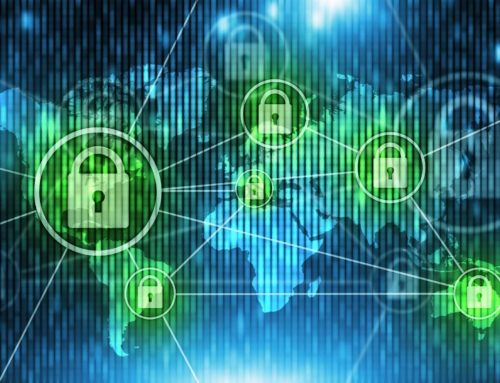Ransomware Attack Recovery: Effective Disaster Response Services
Understanding the Threat: The Rise of Ransomware in Modern Business
In today’s digital landscape, disaster recovery services have never been more crucial. The rampant spread of ransomware has transformed them from an optional IT consideration to an absolute business imperative. Ransomware, a type of malicious software designed to block access to a computer system until a sum of money is paid, has seen an explosive increase in prevalence and sophistication, striking industries across the board and causing operational havoc for unprepared organizations.
A Snapshot of the Current Ransomware Landscape
The current state of ransomware is alarming, with attacks becoming more frequent and complex. Businesses of all sizes find themselves at risk, with perpetrators targeting vulnerable systems to exploit for financial gain. As we stand on the frontlines, supporting companies through these turbulent times, we have witnessed first-hand how these attacks can cripple operations, leading to significant financial losses and reputational damage. It’s clear that no business is immune; thus, preparing for such eventualities is paramount.
Why Being Unprepared for Ransomware Attacks Is No Longer an Option
We understand all too well the detrimental effects that follow a ransomware attack. Being unprepared in today’s threat environment simply means inviting disaster. As the complexity of ransomware schemes continues to evolve, we recognize the necessity for businesses to arm themselves with effective prevention and response plans. The absence of robust defenses and a clear recovery roadmap can lead to extended downtime, data loss, and in worst-case scenarios, business closure.
The Critical Role of Disaster Recovery Services in Ransomware Resilience
Staying ahead of ransomware threats involves a combination of proactive measures and reactive capabilities. This is where disaster recovery services become indispensable. Designed to restore data and IT infrastructure swiftly and effectively, these services ensure business continuity even in the midst of an attack. Our commitment is to provide our clients with the highest level of resilience through meticulously crafted disaster recovery plans that not only protect against ransomware but also offer a lifeline when it strikes. Businesses that invest in these services position themselves to manage and mitigate the impact of ransomware, securing not just their data, but their future as well.
Comprehensive Disaster Recovery Services: Your First Line of Defense Against Ransomware
Proactive Measures: Preventing Ransomware with Robust Disaster Recovery Planning
At Alvaka, we understand that ransomware is not just an IT problem, it’s a threat to your entire business operation. That’s why our disaster recovery services are designed to be proactive, anticipating the challenges and vulnerabilities that could leave your organization at risk. By crafting a detailed and actionable disaster recovery plan, we ensure that the first line of defense against ransomware is already in place, tailored to your unique business needs, and ready to respond at a moment’s notice.
The Anatomy of Effective Disaster Recovery Services: Components That Make the Difference
Effective disaster recovery services hinge on a combination of advanced technology, expert staff, and rigorous process. We leverage cutting-edge solutions to back up your data securely and ensure that it can be restored quickly, minimizing downtime and financial loss. Our team of professionals continually monitors threats and prepares your systems to withstand a ransomware attack, ensuring that resilience is built into every layer of your IT infrastructure.
- Regular Risk Assessments & Threat Analysis
- Sophisticated Data Backup & Encryption
- Continuous Monitoring for Anomalies
- Incident Response Planning & Execution
- Post-Recovery Analysis for Enhanced Protection
Preventive measures are paired with rigorous training to ensure that all employees are equipped to recognize potential ransomware tactics. Furthermore, we regularly test and update your disaster recovery plan to adapt to the ever-evolving cyber threat landscape. Together, these components forge an impenetrable defense against the scourge of ransomware.
Real-life Recoveries: Case Studies of Businesses Saved by Disaster Recovery Services
There is no better testament to the value of comprehensive disaster recovery services than the real-life triumphs over potential disaster. We have numerous case studies that illustrate precisely how our services have supported businesses in the face of ransomware attacks. From the smallest enterprise to the largest corporation, our team has been pivotal in containing incidents, restoring data, and ensuring business continuity.
Consider the scenario of a mid-sized financial firm faced with a sophisticated ransomware infection. With our disaster recovery services in place, we were able to swiftly isolate the breach, recover critical data from secure backups, and get their operations back online with minimal interruption. This level of preparedness and rapid response protected the firm from significant financial and reputational damage.
Ransomware attacks are a pervasive and relentless threat in today’s business landscape. However, with Alvaka’s comprehensive disaster recovery services, you can strengthen your resilience and protect your organization’s future. It’s time to secure your operations with proactive planning, robust recovery measures, and the expertise that only we can provide. Take the next step today towards a more secure tomorrow.
Did you know? Robust disaster recovery services can be the difference between survival and closure for businesses facing ransomware attacks.
Fortifying Your Future: The Indispensable Nature of Disaster Recovery Services
As we’ve witnessed the escalating threats posed by ransomware attacks, the need for robust ransomware recovery strategies has never been so clear. In today’s digital world, where data is the backbone of every business, ensuring the safety of critical information is paramount. At Alvaka, we understand the evolving challenges and emphasize that disaster recovery services are not a luxury, but a fundamental necessity.
Lessons Learned: How Ransomware Attacks Redefine Disaster Recovery Strategies
The unpredictability of ransomware attacks has taught us to always be prepared for the worst. These malignant threats have shown us that reactive measures alone are insufficient to protect our business operations and the integrity of our data. As such, our approach to disaster recovery has evolved, incorporating not just robust backup solutions but also meticulous planning and continuous testing to ensure that our disaster recovery services can meet the demands of any crisis.
Integrating Disaster Recovery Services into Your Overall Cybersecurity Framework
We recognize that disaster recovery services are a critical component of a holistic cybersecurity strategy. It’s about creating a seamless shield that encompasses both preventive measures against cyber threats and effective response mechanisms in the aftermath of an attack. By synchronizing our disaster recovery efforts with broader security protocols, we create a cohesive system capable of withstanding and recovering from disruptive cyber events.
Taking the Next Steps: Evaluating and Choosing a Disaster Recovery Service Provider
Deciding on a disaster recovery service provider is a crucial step for your business. It’s important to consider not only the technical capabilities but also the responsiveness and adaptability of the service. At Alvaka, we offer comprehensive disaster recovery services that are designed to minimize downtime and ensure swift recovery. By partnering with us, you leverage a wealth of experience and expertise, ensuring that your data remains secure and accessible, even in the face of a ransomware onslaught.
FAQ
What is ransomware and why is it a significant threat to businesses? ▼
Ransomware is a type of malicious software designed to block access to a computer system or data until a sum of money is paid. It poses a significant threat due to its ability to disrupt operations, cause data loss, and lead to substantial financial and reputational damage. Given the increasing sophistication and frequency of attacks, it’s crucial for businesses to prioritize defense strategies against ransomware.
Why is it no longer optional to be unprepared for ransomware attacks? ▼
In today’s digital landscape, the question isn’t if a ransomware attack will occur, but when. With the increasing prevalence of such threats, being unprepared can result in catastrophic consequences, including irreversible data loss, financial penalties, and erosion of customer trust. Consequently, it’s imperative to implement resilient defense mechanisms, such as comprehensive disaster recovery plans.
How do disaster recovery services provide resilience against ransomware? ▼
Disaster recovery services form a critical line of defense by ensuring business continuity and data protection. In the event of a ransomware attack, these services enable a swift restoration of data and systems, minimizing downtime and mitigating potential losses. Moreover, they often include proactive measures such as regular backups and threat monitoring, which are essential for early detection and rapid response.
What are the proactive measures included in robust disaster recovery planning? ▼
Proactive measures in disaster recovery planning include frequent and encrypted backups of critical data, real-time threat monitoring, employee training on cybersecurity best practices, and the implementation of strong firewalls and antivirus software. Together, these strategies help prevent ransomware infections and prepare organizations for a timely and effective response.
What are the key components of effective disaster recovery services? ▼
Effective disaster recovery services combine several key components: secure and redundant data backups, a thoroughly documented recovery plan, clear communication protocols, regular testing and drills, and scalable recovery solutions that can adapt to various incident scopes. These components ensure that businesses can recover quickly and efficiently from ransomware attacks.
Can you provide examples of businesses saved by disaster recovery services from ransomware? ▼
While specific case studies are confidential, numerous businesses across sectors, including healthcare, finance, and retail, have successfully mitigated ransomware attacks through their disaster recovery services. Critical data was restored from backups, and operations were quickly resumed, showcasing the pivotal role these services play in business resilience.
What lessons have been learned from past ransomware attacks regarding disaster recovery strategies? ▼
The key lesson learned is that proactive and comprehensive planning is essential. Ransomware attacks have underscored the importance of maintaining up-to-date and secure backups, regular testing of recovery procedures, and the continuous education of staff. These strategies enable businesses to respond quickly and effectively, reducing the impact of an attack.
How should disaster recovery services be integrated into a broader cybersecurity framework? ▼
Disaster recovery services should be seamlessly integrated into a broader cybersecurity framework through alignment with organizational risk management policies, consistent with security best practices, and in close cooperation with other cybersecurity measures such as intrusion detection systems and endpoint security solutions. Regular audits and updates are also crucial to maintain the efficacy of the overall framework.
What are the next steps for evaluating and choosing a disaster recovery service provider? ▼
When selecting a disaster recovery service provider, consider their expertise, the comprehensiveness of their services, and their track record of success. It’s important to assess your specific business needs, request a tailored proposal, and, ideally, conduct a trial or proof of concept. Lastly, review their customer testimonials and ensure their processes align with industry best practices.
Do disaster recovery services also cover physical disasters, or are they solely focused on cyberthreats like ransomware? ▼
While disaster recovery services are a critical defense against cyberthreats like ransomware, they are also designed to provide resilience against physical disasters, such as fires, floods, and power outages. Comprehensive disaster recovery encompasses both physical and virtual threats, ensuring that businesses remain operational under various unfortunate circumstances.








 Smoke testing is a term used to describe the testing process for servers after patches are applied.
Smoke testing is a term used to describe the testing process for servers after patches are applied.  This is a basic cost calculator for you to compute your typical monthly cost for patching your servers, PCs, laptops, tablets and associated application software. It also forms the basis for you to begin calculating your Return on Investment for software patching, or for comparison with alternatives to the manual process of patching operating systems and application software—such as Patch Management as a Service, also known as Vulnerability Management as a Service.
This is a basic cost calculator for you to compute your typical monthly cost for patching your servers, PCs, laptops, tablets and associated application software. It also forms the basis for you to begin calculating your Return on Investment for software patching, or for comparison with alternatives to the manual process of patching operating systems and application software—such as Patch Management as a Service, also known as Vulnerability Management as a Service.